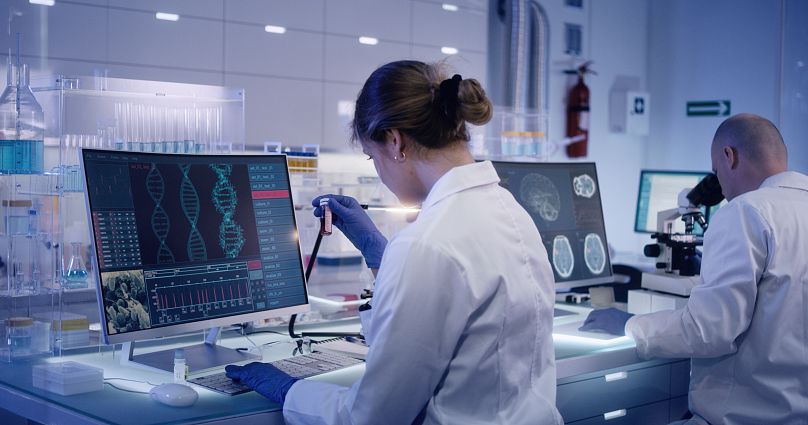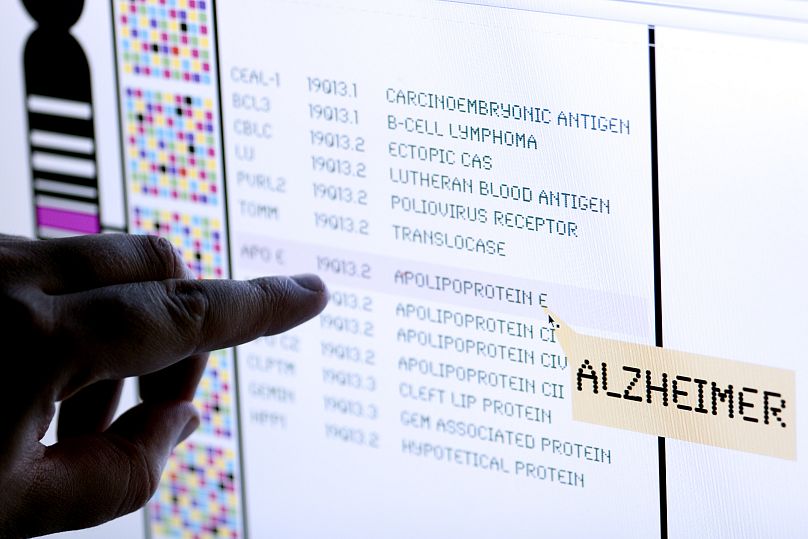The one-size-fits-all approach to healthcare is becoming a thing of the past, shifting towards a more individualised model of care that takes into account a person’s unique characteristics – their genes, environment and lifestyle. This is known as precision healthcare.
 ADVERTISEMENT
ADVERTISEMENT
 ADVERTISEMENT
ADVERTISEMENT
An increased understanding of human genetics, combined with the advances in biotechnology, diagnostics and data-driven technologies has led to this shift, enabling healthcare providers to better identify illnesses and develop more precise and effective treatments, with a stronger focus on risk prediction, prevention and pre-emptive measures.
Precision healthcare and the role of data in healthcare were among the key discussion topics at this year’s inaugural Abu Dhabi Global Healthcare Week, an event where healthcare industry leaders, professionals, entrepreneurs and policymakers come together to collaborate, share ideas and strategise on the future of health.
How big data is helping tailor medical treatments
On the ground at Abu Dhabi Global Healthcare Week, it became clear that the road to individualised healthcare lies, somewhat paradoxically, in mass data gathering and sharing. “Real-world data has enormous potential to shape healthcare,” Alex Bedenkov, VP of Global Evidence for AstraZeneca’s BioPharmaceuticals Medical, explained.
“Transitioning to the future of healthcare, we will be relying more and more on real world data and platforms, including population health platforms.”
At AstraZeneca, precision medicine is applied across its portfolio, first in oncology and now in tackling complex chronic diseases, by identifying and testing specific gene products and biomarkers to uncover how they are linked to disease and to guide the development of tailored drugs.
Beyond industry, national healthcare systems are also harnessing the power of data. Health data exchanges are widely in operation around the world, but no system is more robust than the UAE’s Malaffi Health Information Exchange. A centralised database of unified patient records, Malaffi enables the efficient exchange of patient information between healthcare providers, improving healthcare delivery, equity and patient outcomes.
“This type of platform will shape everything,” Bedenkov said about Malaffi. “Starting by automating patient care pathways, moving into population health, and, most importantly, using this data for the benefits of drug development.”
The groundbreaking potential of genomic data
And it’s not just any data. Today, data-driven healthcare tools are being shaped by genetics and genomics data. As a prime example, we can look to the Emirati Genome Programme, the world’s largest genome project, which uses cutting-edge DNA sequencing and artificial intelligence technologies to generate quality and comprehensive genomic data about Emiratis.
Incorporated into the Malaffi exchange, this reference genome is now informing clinical decision-making with the aim of improving health outcomes at scale. This will be a significant leap towards precision medicine and safer healthcare, with progress continuing as scientists gain a more comprehensive understanding of what drives human health and illness at a genetic level.
Ashish Koshy, Chief Operating Officer of M42, understands this better than anyone. His organisation’s deeptech product, Med42, is an open-access clinical Large Language Model (LLM) driven by generative AI and trained on data from the Emirati Genome Programme.
“It is fundamental as a health tech company to have high-quality datasets to come up with insights that support personalised and precision medicine. Every individual's genomics is your baseline,” he explained.
“[The Emirati Genome Programme] gives every citizen the ability to sequence their genes, which means that we can better understand the health risks of each and every individual. When they walk into a hospital, doctors can prescribe medicines based on their genomics, using the Malaffi portal.”
Unlocking the full value of our health data
Despite promising national collaborations, exemplified by Malaffi and the Emirati Genome Programme, there is nothing quite like it on an international scale. Regulatory challenges as well as bureaucracy in the public and private sectors stall progress, but, if we truly want to impact global health, countries and companies across the globe need to come together. “Working off national datasets can’t solve all our problems,” Koshy said. “But imagine if we could get countries to securely share datasets to solve much bigger problems?”
“To see the true benefit of AI, the data should be large scale. We should collaborate, not just within Abu Dhabi, but also across different regions.”
The aim of Abu Dhabi Global Healthcare Week is to enable this type of international, cross-sector collaboration. This year, AstraZeneca and M42 were joined by dozens of other international healthcare leaders at the inaugural event, including Raymond Fryrear II, M.D., Global Vice President, Scientific Affairs for Robotics and MedTech Digital, @Johnson&Johnson.
“This conference is a very unique experience, with policymakers, providers and industry all under the same roof having these conversations,” Fryrear said. “Technology and biology are important pieces of the puzzle, but the most important piece is people. And that's why connections and networks are so important.”
Empowering patients with equitable access
Precision medicine doesn’t always have to be new and complex. Dr Stephen Grobmyer, Institute Chair at the Cleveland Clinic Abu Dhabi, explained how their state-of-the-art facilities combine with a patient-centred model of care.
“In addition to the technology that's coming, [at the Cleveland Clinic Abu Dhabi] we tend to focus on the basics, which are exercise, weight management and family history. If we could get people to stop smoking, exercise three times a week and control their diet, then we would make a lot of progress in reducing diabetes, obesity and a lot of the diseases that are related to those habits.”
Data sharing linked with AI technologies helps support this basic approach, putting power back into the hands of the individual. Widely accessible digital innovations such as health tracking using biometric data and ‘in app’ diagnostic results help democratise healthcare access.
Innovations in this area were all present in Abu Dhabi for the event, including GluCare, a diabetic healthcare centre offering remote metabolic monitoring, and DietID, a digital dietary assessment tool. These digital apps aim to simplify the patient experience, allowing easy and fast enrollment to diagnostic testing and health management programmes that use evidence-based AI tools to give health advice at scale.
As well as alleviating the burden on healthcare systems, these precise digital tools promote health awareness and empower the populace to take ownership of their health, by incorporating genetic factors and lifestyle biometrics into their daily lives.
Data sharing vs data security
Despite its potential to improve population health and facilitate research, many people still have concerns about the wide-scale sharing of health data, particularly when it comes to its use in artificial intelligence tools.
While the potential of precision healthcare is vast, collaboration across borders and sectors is crucial to address regulatory challenges, ensure data security and democratise healthcare access.
“It is not only an obstacle, but also an opportunity,” Koshi said. “We need to work together collaboratively among all stakeholders, including governments and policymakers, to understand how to use this data properly, without harming patients and patient interests.”
With new advancements pushing forth global healthcare every day, events such as Abu Dhabi Global Healthcare Week help build the path to success. Beyond genetics and data, this year’s event showcased a wide range of new technologies and innovations, also holding forums with policymakers and business leaders to support future healthcare strategy and unlock the full potential of precision healthcare around the world.


